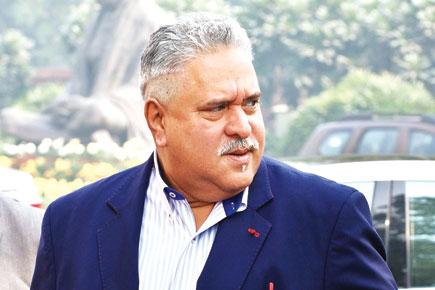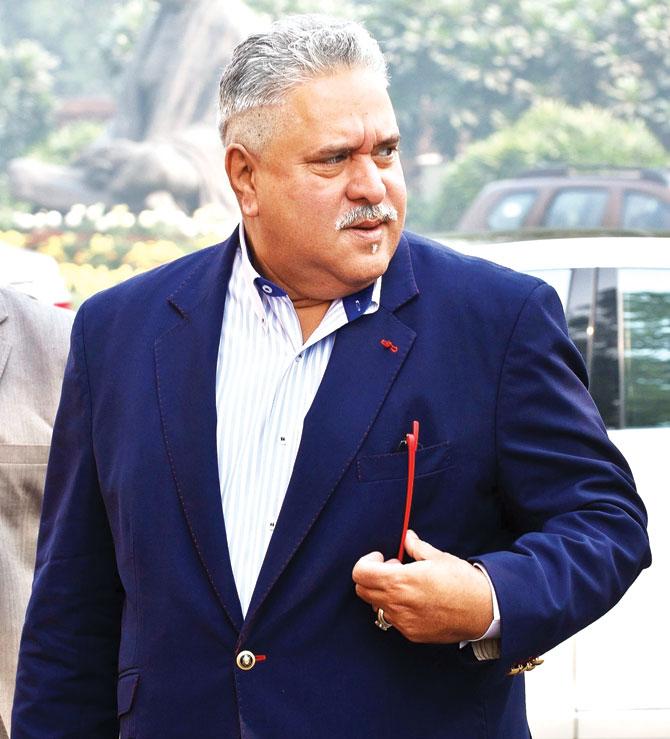India will make a strong case for the extradition of controversial businessman Vijay Mallya from the UK as he "squandered" public money, did not pay employees and defaulted on bank loans, a top government source said


Vijay Mallya
ADVERTISEMENT
New Delhi: India will make a strong case for the extradition of controversial businessman Vijay Mallya from the UK as he "squandered" public money, did not pay employees and defaulted on bank loans, a top government source said on tuesday. The government, he said, wants to break the myth that a law breaker is out of bounds once he is out of country.
Mallya, 61, who has been declared a wilful defaulter on loan tied to his defunct Kingfisher Airlines, was arrested in London today on a request by the Indian government, a year after he left the country. He was, however, released on bail. "Squandering public money, you don't pay employees, you don't pay banks and you maintain a lavish lifestyle and give the system a damn. I think there's a hunger in Indian public opinion to see such people in prison," the source said here. The arrest, the source said, was in connection with default on an IDBI loan. The time taken by the UK court to decide on the extradition request will be less than Indian courts, the source said adding New Delhi will have to present strong proof as extradition request involves offence committed only in one
country.
Anyone facing extradition can resist the process on grounds that he may not get a fair trial in India or that the judicial system is biased against him or is politically motivated. Finance Minister Arun Jaitley had made a case for extradition of Mallya when British Prime Minister Theresa May dropped in on a meeting between him and his UK counterpart in London last month. The flamboyant liquor tycoon is accused of wilfully defaulting on more than Rs 9,100 crore in debt accumulated by Kingfisher Airlines. The source said Indian authorities will have to present a case for extradition of Mallya. "Extradition process now starts," he said. "There is a myth that I will cross the geographical boundaries and take refuge and be out of bounds. India needs to set this precedent". Earlier, Minister of State for Finance Santosh Gangwar said the government was "assessing the facts (as to) how we can bring him back into the country and start judicial
proceedings against him."
The government, he said, will leave no stone unturned to bring to justice anyone indulging in financial irregularities. "During Lok Sabha elections, Prime Minister Narendra Modi had talked about bringing black money back... and of strong steps against economic offenders," he said. He said the loan extended to Mallya were under previous UPA regime and the present government has taken steps to recover the loans and "what happened today is part of that move".
"We are taking stringent steps and will not protect any offender," he emphasised. Asked about bringing other offenders to India, he said it is in process. "The Modi government will leave no stone unturned if anyone is indulging in misappropriation of funds. We are entering into treaties with other countries so that offenders cannot flee. We are on a path to bring the matter within the judicial purview and will assess it further," he said.
Explaining the process, the source said deportation is not a preferred route in case of Mallya as the UK takes such action only in cases when someone lands without a valid travel document. Once an extradition request is made, the British government considers merit and India has crossed that hurdle in Mallya's case, the source said. "If they think it is a request worth considering, then they refer it to the court and then the UK government steps out. So this step has been crossed now and the court issues a warrant. "After the warrant is issued, depending on the nature of the case, the court decides whether to give him bail or not. Since it is a monetary offence, they have given bail. Maybe if it was a murder case, they wouldn't have given a bail but the bail has some conditions," he said.
Now, in the court, the Indian authorities will have to present a case for extradition. "And in extradition, you have to present the facts that he is liable to be tried in India."
 Subscribe today by clicking the link and stay updated with the latest news!" Click here!
Subscribe today by clicking the link and stay updated with the latest news!" Click here!







